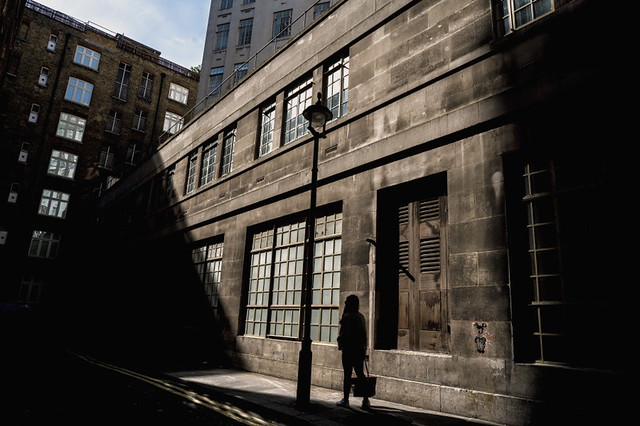RICS Quals Earn The Big Bucks & Gender Pay Gap Closing
A 39% higher salary – that's the effect a RICS qualification has on average pay in the real estate and built environment sector says our survey. This is just...
Read Full Article
A Rewards & Attitudes Survey has found that professionals in the industry are mostly positive about the outlook for the real estate and built environment in 2019 - despite Brexit gloom.
More than half of respondents to the 20th RICS and Macdonald & Co. Rewards and Attitudes Survey - supported by ThisWeekinFM - expect their companies’ revenues to increase as they benefit from new business opportunities. However, there is a shadow tainting the optimism, with more respondents expecting negative effects on their personal situation, their employer, sector and region because of Brexit.
This year’s RICS and Macdonald & Co. Rewards and Attitudes Survey gathered qualitative and quantitative data from 3,461 respondents. There was a broad range of ages and experience as well as sectors and regions represented.
Brexit
One area in which the survey questioned professionals in the industry was Brexit. Specifically, the survey asked what impact Brexit might have on respondents’ personal situations, their employers, sector and regions. Across all themes, respondents felt more negatively than positively. The percentage of respondents who feel that Brexit will have a negative impact ranged from 36% (impact on sector) to 24% (impact on personal situation). However, the percentages that think the impact will be significantly negative are much smaller:
Personal situation 10%.
Employer 8%.
Sector 13%.
Region 14%
Talent acquisition
The survey also asked what respondents feel about the effect of Brexit on subjects such as hiring and the availability of talent. In these, responses were a little less pessimistic. For example:
59% of respondents feel the Brexit will have a neutral impact on hiring at their firm, though 34% felt that hiring would decrease.
While 36% of respondents feel that the availability of skilled talent will decrease, 9% believe it will increase and 56% feel that Brexit will have a neutral effect.
Investment and revenue
Almost a third of respondents (32%) feel that sector investment from outside of Europe will fall, while a little more than half (53%) feel that investment from Europe will fall.
However, despite the Brexit pessimism, the mood in the industry is buoyant, with general positivity for prospects through 2019. Indeed, 57% of respondents feel that their company’s revenue will increase or increase significantly, versus only 11% who feel it will decrease and just 1% who feel it will decrease significantly.
New business
Looking forward, respondents were also positive about the potential for new business opportunities, with 40% expecting them to increase and almost a quarter of these expecting a significant increase. Only 16% expect new business opportunities to decrease.
As new business opportunities and revenues increase, respondents are optimistic about their firms investing in technology, training and development and in adding new permanent staff. Here, the responses to the survey were:
33% expect investment in technology to increase versus 16% who expect such investment to decrease.
25% expect investment in staff training and development to increase versus 18% who expect such investment to decrease.
34% expect their company to increase the hiring of new permanent staff opposed to 22% who expect hiring or new permanent staff to decrease.
Twists & turns
Commenting on the survey findings, CEO of Macdonald & Company Peter Moore said: “It doesn’t surprise me that there is negativity surrounding Brexit. It is an emotive subject and the uncertainty caused by the whole process is unsettling all sectors of the economy. However, when asked to concentrate their minds, professionals in the real estate and built environment sector are more considered. There is huge investment in infrastructure across the UK – with projects such as HS2, Hinkley Point and Heathrow boosting business – and the underlying demand for new homes is proving difficult to supply.
“On the whole, it appears that those on the front line are confident of the future, even though Brexit may produce a couple of twists and turns that will need to be navigated with care.”
Picture: Professionals in the real estate and built environment sector are positive about prospects in 2019.
Article written by Cathryn Ellis | Published 28 March 2019
A 39% higher salary – that's the effect a RICS qualification has on average pay in the real estate and built environment sector says our survey. This is just...
Read Full ArticleThe gender pay gap has closed in the real estate and built environment sector according to the latest RICS and Macdonald & Company Rewards and Attitudes Survey which...
Read Full ArticleThe Royal Institution of Chartered Surveyors has published its latest quarterly FM survey, which collects data from facilities managers, service providers and FM...
Read Full ArticleThe latest RICS UK Facilities Management Survey results show that, for the first time since the COVID-19 crisis, profit margins in the sector are expected to...
Read Full ArticleThe RICS UK Facilities Management Survey has revealed that workers across the UK could return to offices faster than anticipated, according to those working in the...
Read Full ArticleA quarterly survey from RICS suggests that workplace and relocation management will be fasting growing area of FM over the next twelve months. Based on responses...
Read Full ArticleThe demand for FM services continues to be driven by need from the healthcare sector, according to the latest FM survey from RICS. In the retail sector, demand is...
Read Full ArticlePaul Bagust, Global Property Standards Director at RICS looks to the future of global real estate's occupiers and investors. Bagust has delivered many...
Read Full ArticleThe Living Wage Foundation has launched Living Hours, a new programme to tackle the widespread insecurity many 'employees' suffer over hours they might get to...
Read Full ArticleWith the Government already in disarray over more Brexit drama, striking workers brought fresh disruption to the corridors of power on January 22 in fight for the living...
Read Full Article